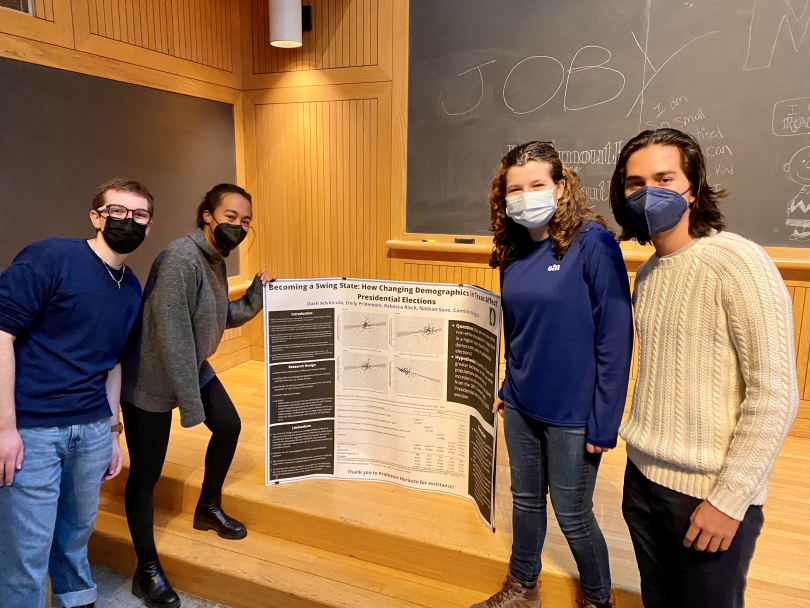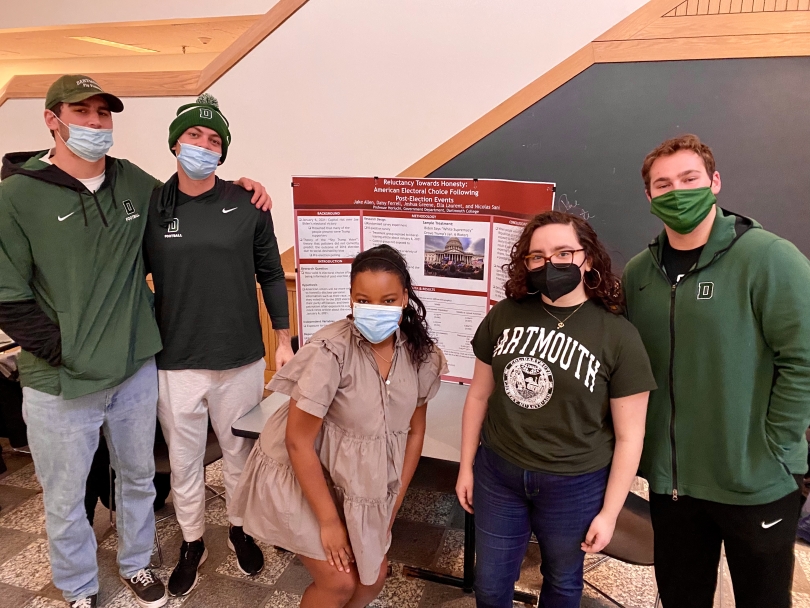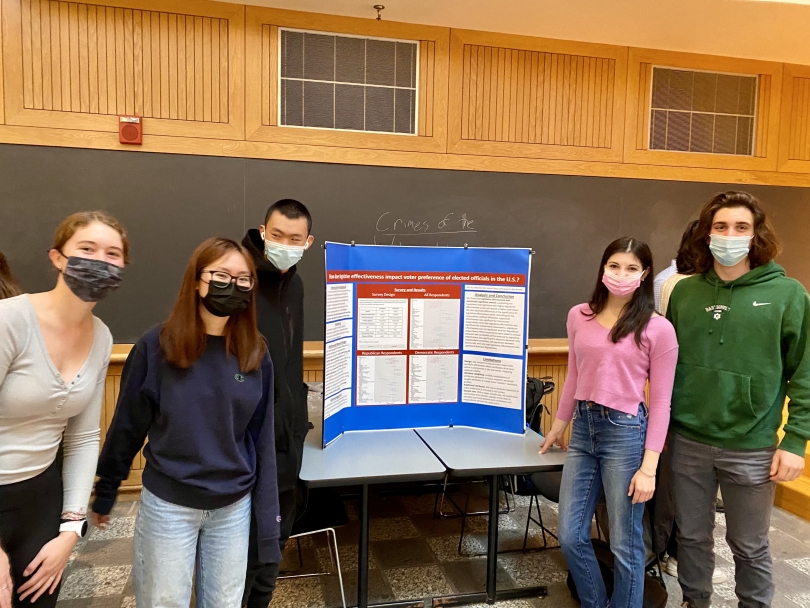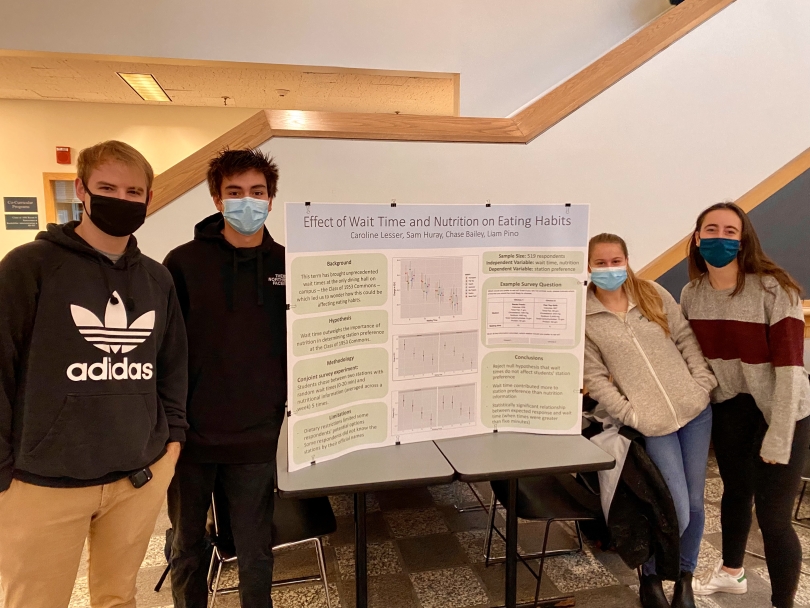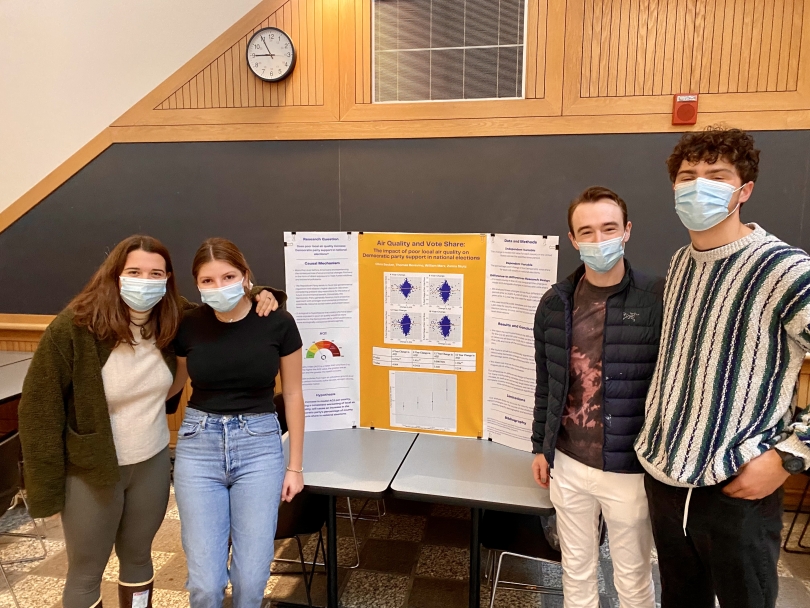Students have been working hard to find interesting topics and have carefully designed their studies to test empirical hypotheses this term in Prof. Horiuchi's GOVT 10:Quantitative Political Analysis. Some studies are based on observational data, while others are based on experimental data (two being based on conjoint analysis).
Group 1
Becoming a Swing State: How Changing Demographics in Texas Affect Presidential Elections
- Summary: This project uses an observational difference-in-differences design and county-level data to examine how increases in the non-white populations of Texas counties have influenced the democratic vote share in presidential elections.
Group 2
Reluctancy towards Honesty: American electoral choice following post-election events
- Summary: Based on a survey experiment, we examined the impacts of exposure to news about the connection between white supremacy and the January 6th riot. We were particularly interested in these impacts as they related to the American people's attitude towards their political affiliation, democracy, and their own racial identity. In this study, we intended to measure the level of social desirability bias implicated in disclosing personal political information following controversial events.
Group 3
How Legislative Effectiveness Affects Voter Preference: Conjoint Analysis Evidence from the U.S.
- Summary: Using conjoint analysis, we investigated how knowledge of a candidate's legislative effectiveness impacts voter preference of candidates in an election. We asked 250 respondents to choose from a series of candidates with randomly assigned attributes, including race, age, and former occupation, in addition to legislative effectiveness. Based on this data, we were able to examine how legislative effectiveness measures up to other candidate attributes in how it impacts voter choice.
Group 4
The effects of waiting times and nutritional information on Dartmouth's eating habits
- We created a conjoint survey experiment after observing the unprecedented wait times at the Class of 1953 Commons (FOCO). The goal was to determine whether the increased wait times led students to change their eating habits, possibly becoming less healthy, or if nutritiousness outweighed impatience. The survey was sent to all Dartmouth undergraduates, and respondents chose between two profiles, each containing a randomly generated wait time between 0 and 20 minutes and randomly chosen nutritional information for a serving station.
Group 5
Air Quality and Vote Share: The impact of poor local air quality on Democratic party support in national elections
- Whether from direct exposure to recent heat-fueled wildfires or experiencing smog en route to work each day, the American public has more first-hand exposure to the effects of climate change than ever before. This leads one to question if there is any political significance of environmentalism and if there is a tangible shift in voting patterns based on the growing environmental consensus in the United States. Given that the Democratic party has had a more eco-friendly agenda that mentioned climate issues more frequently than their Republican opponents, our research seeks to determine if poor local air quality increases Democratic party support in national elections from 1980 to 2020. We use a simple difference in differences design to compare the change in the differences in democratic vote share between counties where the Air Quality Index (AQI) became worse over time and counties whose AQI remained relatively similar or got better, controlling for key demographic and economic factors.
